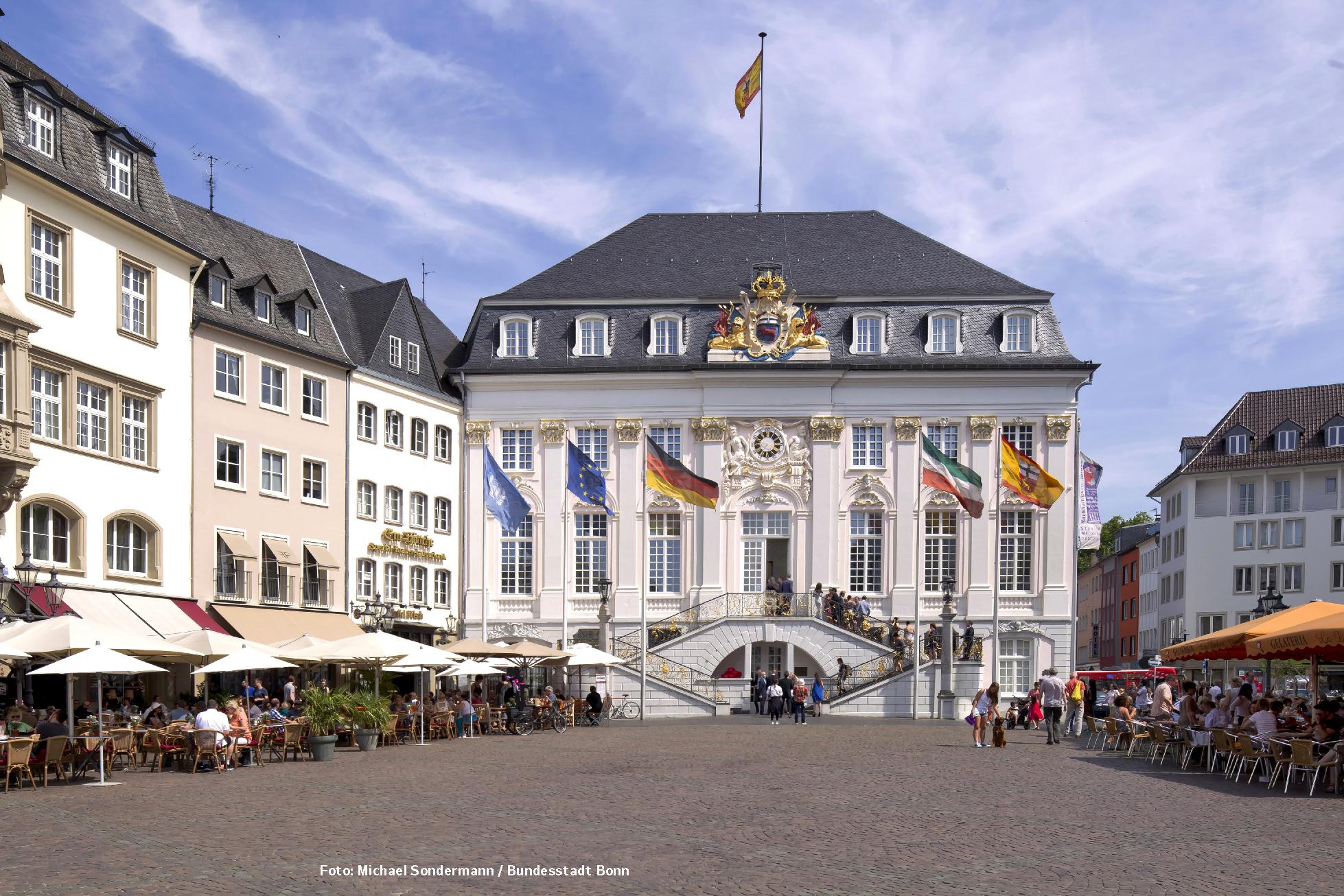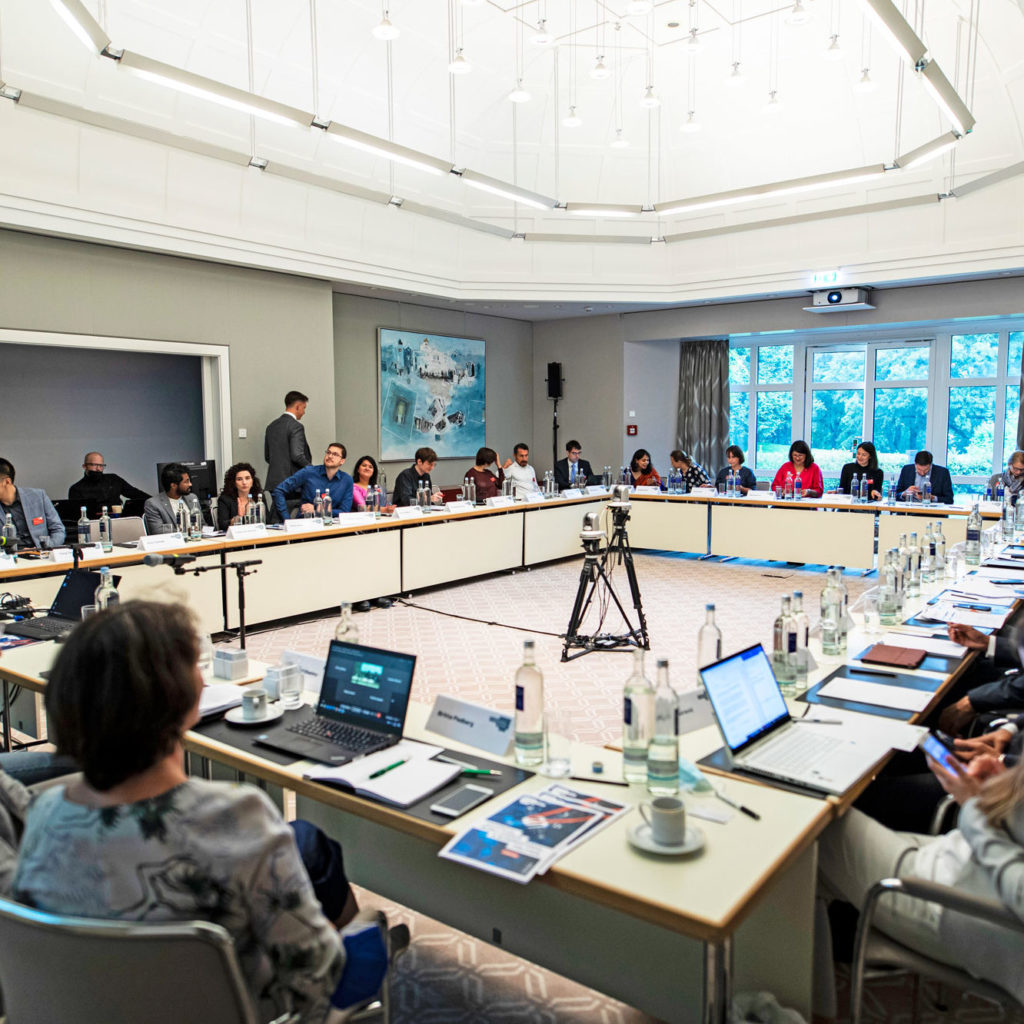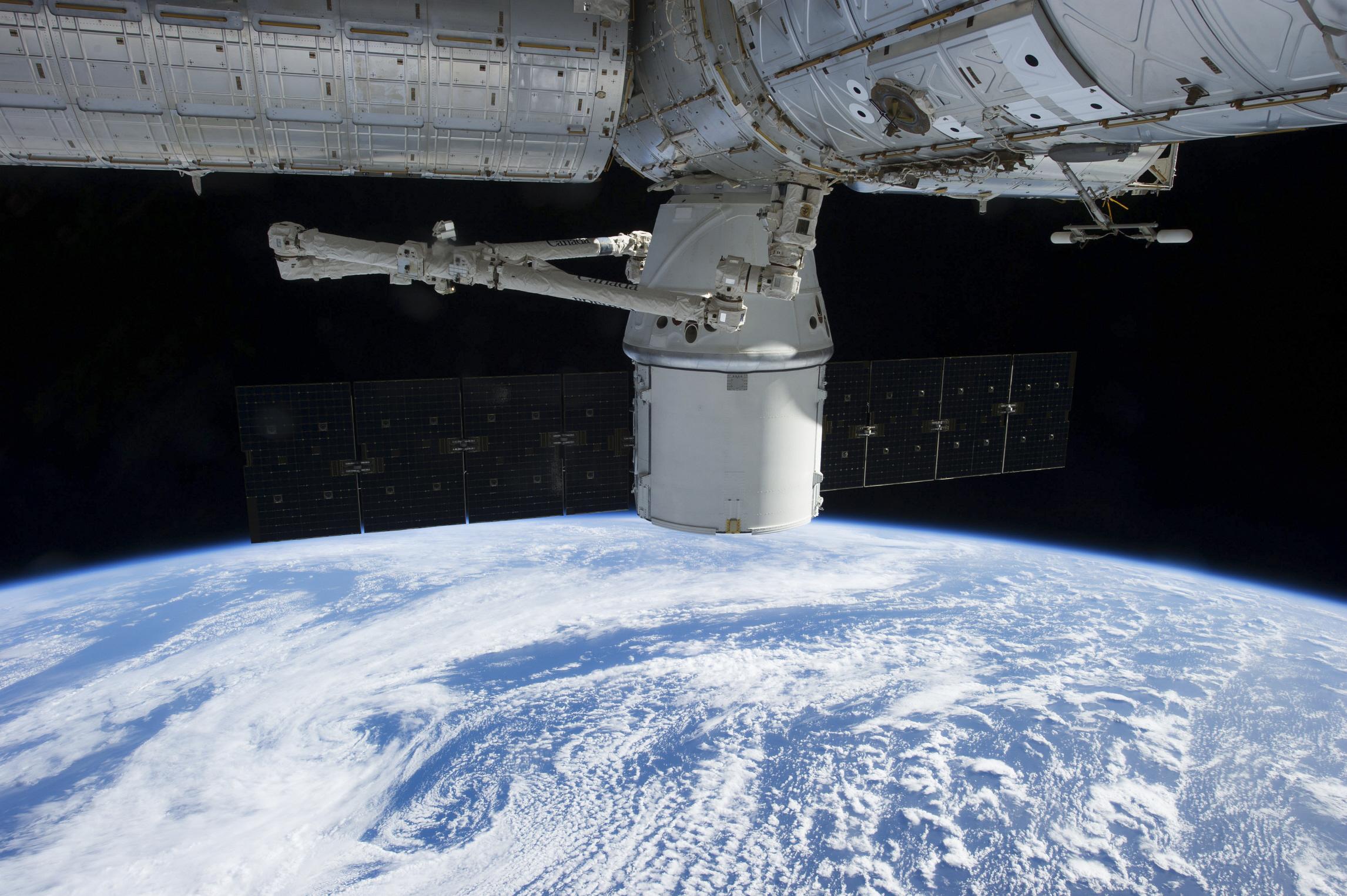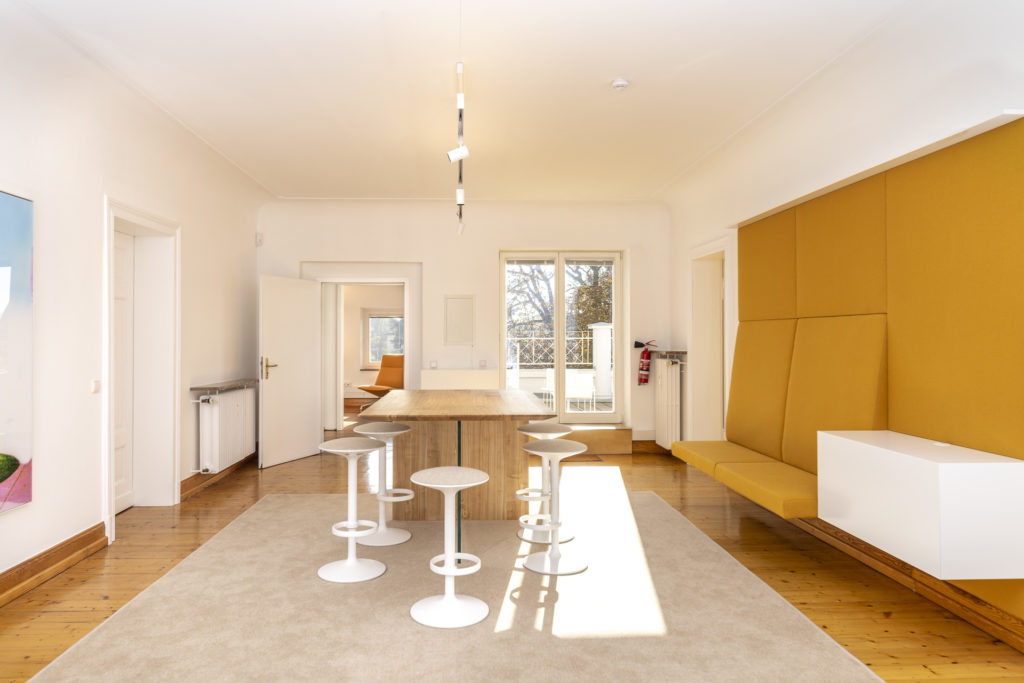In the face of great challenges we want to think differently about international politics. With researchers from around the globe, in discussion with politics and society, we are seeking out new ideas and expanding perspectives.

Fellow
Programme
The Academy is both a site of research and an exchange for ideas. The Academy offers its Fellows ideal working conditions in which to pursue their own questions. In conversation with scholars and scientists from other disciplines, with politicians and civil society, new perspectives arise.
Bonn.
The Federal City.
The capital city of the old Federal Republic has long been an important European research location. Bonn is home to outstanding scientific institutes, international organisations, UN institutions and federal ministries. Bonn is a small-scale, close-knit city and offers an ideal environment for developing the ideas of the future.


Events
From scholarly conferences, lectures and panel discussions through to conversations held within a small circle – the Academy conducts different events series. Debate on our chosen themes is held with a wide range of figures. We invite academic researchers, politicians, business, the media and the interested public to join us.
Academy
What’s New
 Allgemein
Allgemein‘Fellow Speed dating’ with students of the MSIS program (University of Bonn)
The AIA NRW and its Fellows were delighted to welcome 25 Master’s students from the second year of the new “Strategy and International Security” (MSIS) program at the University of Bonn, which is led by our Academic Board member Ulrich Schlie.
Read more
Das Team der AIA NRW mit Fellow Mariia Levchenko beim UN-Tag in Bonn. AllgemeinAIA at the UN-Day in Bonn
This year, the AIA was represented for the first time with a stand at the city of Bonn’s annual United Nations Day. Many organizations, associations and institutions from international Bonn presented themselves here. We would like to thank the City of Bonn for the excellent organization, our partner institutions and all interested citizens with whom we were able to talk about our work.
Read more Coffee & Cake
Coffee & CakeInternational space law and the question of legally binding vs. soft law instruments
On October 10, the Academy was visited by Dr Ranjana Kaul, Partner at Dua Associates, Law Offices, New Delhi, India and Dr Nayoung Youn, Senior Researcher in the Policy Team of the Korean Aerospace Research Institute. These two Asian legal experts on the subject of space policy and the rule of law are currently on a delegation trip to Europe organized by Olivia Schlouch and Stefan Samse from Konrad Adenauer Foundation.
Read more
Serap Güter in der AIA am 01.10.24 © Volker Lannert Originalfilename: P3-5A3A0770 FellowsExchange with Serap Güler, MP
On Thursday, October 1, Serap Güler, member of the Defense Committee of the German Bundestag, visited the Academy.
Read more Impulse
ImpulseSub-national Diplomacy: Best Practices
Our Associate Fellow Vivek Anand shares his best practices in sub-national diplomacy.
Read more Conference
ConferenceAIA Panel at the DVPW Convention
The Geopolitics of Outer Space The German Political Science Association (Deutsche Vereinigung Für Politikwissenschaft – DVPW) organized its 29th Annual Academic Convention at the Georg-August-Universität Göttingen. The overarching theme was “Politics in times of Polycrisis”.
Read more Fellows
FellowsFellows meet members of the Academic Board
On Friday, 13.09., our Fellows had the unique opportunity to meet members of our Academic Board. During a lively debate hosted by our director, Dr. Mayssoun Zein Al Din, the Fellows talked about their research projects at AIA and discussed the fellowship programme. The board members appreciated to be able to link faces to files.
Read more Fellow Colloquium
Fellow ColloquiumWeaponized Interdependence and Renewable Energy Transitions in Africa-Europe Relations: Impact of the EU Green Deal
Albert Ahenkan and Samuel Anuga presented their research project on the European Union’s Green Deal (EGD) to promote the transition to renewable energy in the context of EU-Africa relations on September 19. Amidst global and regional geopolitical shifts and the urgent need for environmental sustainability, the two fellows are investigating how the EGD acts as a catalyst in promoting renewable energy sources and technologies between these two different continents.
Read more Fellows
FellowsVisit by a group from the Federal Office of Bundeswehr Personnel Management
A group from the Federal Office of Bundeswehr Personnel Management visited the academy on September 17, 2024. The 45 participants were given an overview of the academy’s profile and activities. This was followed by an exchange with the AIA Fellows Chelsea Haramia, Mariia Levchenko and Raúl González Muñoz, who presented their respective research projects.
Read more
AIA-Besuch am Radom in Berkum am 09.09.24 © Volker Lannert Originalfilename: P3-499A8764 FellowsFellows meet Fraunhofer FHR
On 9 September 2024, the fellows working on the topic of outer space went on an excursion to the Fraunhofer Institute for High Frequency Physics and Radar Techniques (FHR) in Wachtberg. There was a lively exchange between the scientists working there and the fellows on their respective research projects. The visit concluded with a tour of the space observation radar, TIRA.
Read more





